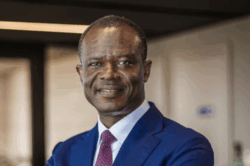The nation’s ability to industrialise sustainably hinges on its capacity to attract climate-aligned capital and institutionalise Environmental, Social, and Governance (ESG) standards, according to finance professionals and policy advocates speaking at a high-level workshop on green finance held in Accra.
The event, organised by the Africa-China Centre for Policy and Advisory (ACCPA) in collaboration with the Sino-Africa Green Finance Alliance (SAGFA), brought together stakeholders from government, banking, investment, and development sectors to examine how Ghana can unlock green capital for sustainable industrial growth.
Speakers warned that while the country’s industrial ambitions are clear, the absence of ESG-aligned capital frameworks and limited access to green financing remain key constraints.
“Green finance is not charity. It is about opportunity, competitiveness, and long-term value creation. Our role is to shape a financial system that rewards sustainable behaviour, not just punishes the unsustainable,” Paul Frimpong, Executive Director of the Africa-China Centre for Policy and Advisory said.
According to the Climate Policy Initiative, global climate finance flows reached US$1.3 trillion in 2021/22, but Africa captured less than three percent of that amount. For Ghana, which is targeting an industrial transformation through strategic sectors such as renewable energy, agro-processing, and manufacturing, unlocking green capital is critical.
“ESG must become a strategic pillar for businesses in Ghana—not an afterthought. Firms that align with ESG principles will have a competitive edge in accessing international markets and capital,” Mr. Frimpong stressed.
The workshop featured insights from senior market professionals, particularly during a plenary session, titled ‘Towards Green Industrialisation in Ghana: Perspectives’.
Drawing from policy experience, private sector realities, and sustainability frameworks, the speakers emphasised the need for cross-sectoral alignment and bold reforms to make green industrialisation viable and scalable.
“Ghana’s green industrialisation must be built on a foundation of policy consistency, accessible finance, and intentional investment in renewable technologies,”Charles Ofori, Policy Lead for Climate Change and Energy Transition at the Africa Centre for Energy Policy (ACEP), noted.
Abena K. Baidoo, Head of ESG at CalBank, stated that Ghanaian banks were beginning to adopt ESG screening tools but needed broader regulatory clarity and technical support.
“Green industrialisation is not just an environmental priority—it’s a business imperative. For companies, aligning sustainability with financial performance is key to long-term growth and impact,” she stressed.
Ebenezer Asumang, a Sustainability Consultant and ESG expert echoed the importance of ESG principles, noting that sustainable industrialisation can enhance resilience and market competitiveness.
“Businesses that integrate ESG not only attract investment—they lead the future,” he remarked.
Participants examined key barriers to green finance in Ghana, including high interest rates, lack of data on sustainability performance, and weak institutional coordination. Several breakout sessions explored innovative mechanisms such as green bonds, blended finance, and concessional lending for climate-smart ventures.
Mr. Frimpong reiterated the importance of aligning Ghana’s financial system with global sustainability benchmarks.
He also called on the government to provide clear policy signals, including fiscal incentives and regulatory reforms, to boost investor confidence in Ghana’s green economy.
The workshop was held under the auspices of the Sino-Africa Green Finance Alliance, a platform supported by Chinese and African institutions to foster south-south cooperation in sustainable finance.










